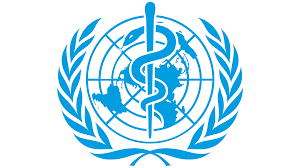The Hippocratic Oath is an oath of medical ethics historically taken by all doctors. It is the earliest expression of medical ethics establishing several principles which remain of paramount significance today, including confidentiality and non-maleficence.
The original oath traditionally is attributed to the Greek doctor Hippocrates (460-370BC) but may not have actually been written by him. Nevertheless a Greek scholarly tradition followed known as the Hippocrates Corpus which unfolded over many years.
‘First do no harm’
The first principle of the Hippocratic Oath is considered to be ‘First do no harm’ although the precise phrase does not appear in early published versions. However, the wording “I will abstain from all intentional wrong-doing and harm” was there.
I came across this first principle early in my over 30 years with the Association of Salaried Medical Specialists (ASMS). Initially I thought it was a bit minimalist but quickly came to appreciate its wisdom and power. From time to time I would use it to amplify a point in a media interview.
These four words say so much going far beyond the practice of medicine. Dr Peter Roberts (an intensivist and physician and former ASMS president) once said many years ago that bad policy is more harmful for patients than flesh-eating bugs.

Dr Peter Roberts: bad policy more harmful than flesh-eating bugs
If…
If ‘First do no harm’ had been applied to health policy-making in the 1990s New Zealand would not have tried to convert our cooperative public health system providing a universal public into competing commercial businesses.

Former Prime Minister Jim Bolger first did harm by commercialising the public health system
If ‘First do no harm’ had been applied to New Zealand’s health workforce, the woeful neglect by the previous National led and current Labour led governments would not have happened. The severe shortages the health system is now confronted with the consequential fatigue and burnout would not have occurred.

Prime Ministers John Key and Jacinda Ardern first did harm to the public health system by ignoring increasing health workforce shortages
The consequential denial of access to diagnosis and treatment for patients would not have occurred. The quality of patient treatment would not have been put at such risk. Health staff would not have had to pay for this precarious situation with their health.
If ‘First do no harm’ was being applied the Labour government would not be abolishing the statutory bodies (district health boards) responsible for the provision of healthcare to New Zealanders in the midst of a pandemic.
Hippocrates Corpus and airs, water and places
Recently I read a fascinating analysis of the interplay between capitalism and the ecology of disease written by three American sociologists (two professors and one associate professor) in Monthly Review (June 2021) Hippocrates Corpus.
It is a highly recommended read including about the significant contribution of Dr Salvador Allende to epidemiology (the Chilean elected president overthrown by a murderous military coup in 1973).
But what first struck me was an extract from part of the Hippocrates Corpus. Specifically it was from the commencement of the classic Hippocratic text Airs Waters Places (around 400 BC). It was written for the Greek medical profession rather than the wider population (citizens and slaves) but has a wider application to health systems.
It is worth repeating both because of the wisdom of the time and its contemporary relevance:
Whoever wishes to investigate medicine properly, should proceed thus: in the first place to consider the seasons of the year, and what effects each of them produces, for they are not all alike, but differ from themselves in regard to their changes. Then the winds, the hot and cold, especially such as are common to all countries, and then such as are peculiar to each locality.
We must also consider the qualities of the waters, for as they differ from another in taste and weight, so also do they differ much in their qualities. In the same manner, when one comes into a city to which he is a stranger, he ought to consider its situation, how it lies as to the winds and the rising of the sun.…
These things one ought to consider most attentively, and concerning the waters which the inhabitants use, whether they be marshy and soft, or hard, and running from elevated rocky situations, and then if saltish and unfit for cooking, and the ground, whether it be naked and deficient in water, or wooded and well-watered, and whether it lies in a hollow or confined situation, or is elevated and cold; and the mode in which the inhabitants live, and what are their pursuits, whether they are fond of drinking and eating to excess, and given to indolence, or are fond of exercise and labor.…
For if one knows all these things well, or at least the greater part of them, he cannot miss knowing, when he comes into a strange city, either the diseases peculiar to the place, or the particular nature of common diseases, so that he will not be in doubt as to the treatment of the diseases, or commit mistakes, as is likely to be the case provided one has not previously considered these matters.
And in particular, as the season and the year advances, he can tell what epidemic diseases will attack the city, either in summer or in winter, and what each individual will be in danger of experiencing from the change in regimen.… For with the seasons the digestive organs of men undergo a change.
Social determinants of health
The three sociologists correctly describe these words as a dialectical, materialist, and ecological approach to epidemiology. They quote Frederick Engels approvingly saying that the “old Greek philosophers were all born natural dialecticians. What stands out in the above wise words is their strong materialist and ecological basis.
They also point out that a “…key element of this view was the notion of a dialectical relation between the body and the environment, such that the body was situated or embodied in a particular place and specific natural conditions (air and water)…”
In today’s language much of the Hippocratic Corpus is about what is called external social determinants of health which no less than the World Health Organisation (WHO) describes as the non-medical factors that influence health outcomes. They are:
…the conditions in which people are born, grow, work, live, and age, and the wider set of forces and systems shaping the conditions of daily life. These forces and systems include economic policies and systems, development agendas, social norms, social policies and political systems.
Social determinants are the biggest driver of health demand (and cost); even more important than healthcare and lifestyle choices. They have a big influence on health inequities with a gradient based on the lower people’s socioeconomic position, the worse their health.

WHO’s social determinants consistent with Hippocrates
In a practical context examples of social determinants identified by WHO are:
- income and social protection;
- education;
- unemployment and job insecurity;
- working life conditions;
- food insecurity;
- housing, basic amenities and the environment;
- early childhood development;
- social inclusion and non-discrimination;
- structural conflict; and
- access to affordable health services of decent quality.
Applying Hippocrates today
It is astonishing that the insights and wisdom of Hippocrates, his oath and subsequent corpus are so relevant to today’s health system and medical profession, both in New Zealand and globally. This is despite the fact that the both modern health systems and the practice of medicine are infinitely more complex than that ancient Greek era. The essence of Hippocrates remains equally instructive.
The sooner health system decision-making (including by its political leadership) is, before considering anything else, based on first do no harm the sooner our health system’s effectiveness, kindness, accessibility, quality and fiscal performance will improve.
This begins with recognising the importance in investing in the system’s greatest asset, its value-driven workforce with its enormous intellectual capital. It also means not destabilising how we provide healthcare to geographically defined populations, especially during a pandemic. This is ABC stuff but for our political leadership it is XYZ.
More difficult but as important is that we need a transformational and tangible approach to addressing social determinants of health. Because they are external to it, there are limits to what the health system can do.
But the engagement culture at the Canterbury DHB that led to health pathways between community and hospital care which, in turn, led to an unprecedented bending of the curve of acute demand showed what is possible.
Unfortunately this culture was crushed in Canterbury by dirty politics from central government aided by business consultants. The Ardern government would be wise to foster and spread that engagement culture.
Overwhelmingly though, the biggest impact on social determinants requires a strategic direction from government focussed on turning around the examples identified by WHO. The government has dabbled in this area and made some positive initiatives such as healthy homes and public health initiatives by Associate Health Minister Ayesha Verrall.
But a strategy these fragments don’t make. Maybe a chat with a hologram of Hippocrates would help!
Ian Powell was Executive Director of the Association of Salaried Medical Specialists, the professional union representing senior doctors and dentists in New Zealand, for over 30 years, until December 2019. He is now a health systems, labour market, and political commentator living in the small river estuary community of Otaihanga (the place by the tide). First published at Otaihanga Second Opinion






The Hippocratic oath has also some other points not mentioned in the article: “I will use those dietary regimens which will benefit my patients according to my greatest ability and judgment, and I will do no harm or injustice to them. Neither will I administer a poison to anybody when asked to do so, nor will I suggest such a course. Similarly I will not give to a woman a pessary to cause abortion.”
I don’t mind your putting the boot into Key, Ardern and especially Bolger. Harder!
But if you were to succeed in conjuring up a hologram of Hippocrates, and if Dr H. were to read the last few paragraphs of your article, I think you’d find yourself on the receiving end of a few less well-known ancient greek “oaths”. I doubt Dr H. would be impressed with your hijacking of his oath for woke “social justice” propaganda purposes.
??????
This thought, inconsequential, before I read this long-form journalism packed with useful background and interesting information as usual no doubt.
The current oath heard most frequently and often fervently, is:
Oh My God.
Ian, an interesting slant on the Hippocratic Oath – unfortunately politicians don’t swear to this oath.
‘First do no harm’ – the harm has already been done; some would claim that our once healthy public health system is itself on life support. We, the tax payer, currently pour mega-bucks into a ‘system’ that arguably is crumbling at its very roots. I fear much of the funding is soaked up in the administration and bureaucracy of the multiplicity of boards, organisations, and vested interests involved.
It is indeed very questionable if in the midst of a pandemic a major reshuffle is wise, but change is certainly necessary. We have watched the current model produce ever worsening results for many years and it is clearly unsustainable to continue in its current form. A government faced with a crumbling unsustainable system, and 3 year term has little opportunity to direct a gradual evolution of the system. The current one will be held accountable if the proposed changes do indeed, as some are claiming, finally collapse the system. We should be demanding that the main political parties come to a consensus on what model is to be used, continual change destroys any hope of providing a robust service and we deserve better from our elected representatives..
Well intentioned or political enthusiasts elected to health boards, often with no knowledge of hospitals or the wider health care requirements, add little value to the system – and once again they are on a 3 year term.
Hospitals, and the many ancillary services need consistency and to be run and managed by those with the necessary skills and experience, I believe the elected boards add very little value to the provision of services and we need to move away from the elected committee knows best approach.
My experience with DHB boards is that elected members are not the issue. They make up a small majority of each board and the government appoints the rest including Chair and Deputy Chair. I’ve not noticed a difference in competence between elected and appointed members. In fact, many elected members have interesting relevant backgrounds and are more likely to understand the populations their DHBs are responsible for.
The real problems facing our health system come from within central government where decision-making is too arbitrary and top-down plus the absence of an engagement culture that recognises those health professionals DHBs employ possess an enormous level of intellectual capital that could be better used to improve systems as well as treat and diagnose patients. After these two problems comes funding, not before.
Thank-you Ian. I totally agree with your observation about the “enormous level of intellectual capital that could be used to improve systems” but wonder why this is not being achieved in the current independent DHB structure.
Yes, I also worry about the centralised arbitary dictatorial approach, but is it a way to reduce the current medical care determined by post-code?
I must agree with Peter and the likes of Chris Jackson. The DHB set up does lead to post code treatment (at least in oncology).
Ian your article rightly points out some of the major issues facing healthcare…work force, infrastructure etc. Again, I would ask what have a certain level of that work force, as in the executive level, done to make a positive difference? Despite the cost associated with these boards they seem unable to address the major issues that are faced. Would that money not be better spent on patient facing resources?
I would also be interested in your thoughts around healthcare professionals who practice both in public and private? It’s obvious that (again at least in Oncology) under funding in public (especially in newer treatments) has made some healthcare professionals a very tidy sum in private. I am not judging these professionals but working two jobs might be impacting workload.
No DHBs don’t lead to postcode lottieries but because they are responsible for geographically defined populations they better enable them to be identified. Under EY’s new system the data would be more likely be aggregated to the point of fudging the significance of a lottery.
In medical specialists national collective contract which I negotiated there is a conflict of interest obligation but it has to be material, not perceived.
Very well put blog and spot on about the Canterbury District Health Board.
DHBs were variable over engagement cultures including internally. The DHB that progressed the most towards engagement was Canterbury but it got crushed by central government and EY consultants. The more a DHB engages the more it listens and follows expertise and experience that contradicts arbitrary top-down central decision-making.
Further centralising the bureaucracy won’t address postcode lottery. Even anything it might simply remove localised data collection; ie, fudge it.
Ian, I note EY’s involvement and I am, from past personal experience, certainly very nervous about any ‘plan’ or ‘direction’ that they have been involved in. They are like lawyers having no responsibility for the outcome. I wonder if it would have been possible to introduce the culture of the CDHB into other DHBs? This is obviously not what the Government, Wellington bureaucracy or EY want, but from your blog would appear to have been a logical evolutionary step, and I would admit a far more pragmatic move at this time of crisis.
Agreed. That is what should have happened and some of it was happening until cut short.
Comments are closed.